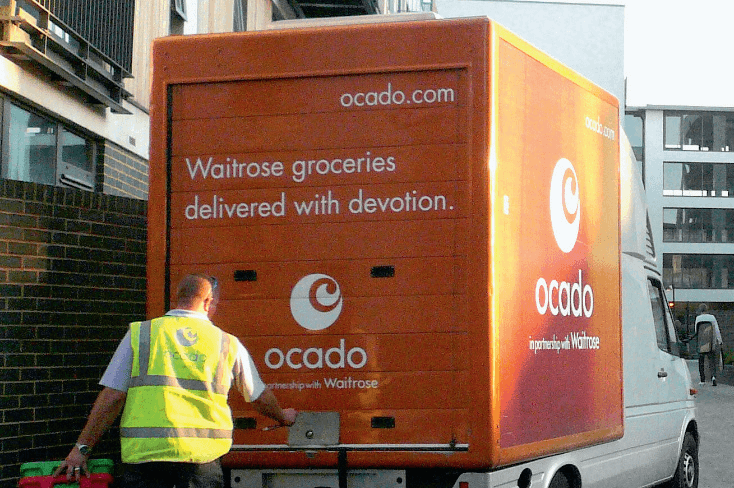The wrong conversation
In a new TV ad for The Co-operative, a husband appears on screen to give a message to his wife: he’s had enough of doing the big weekly shop with her, getting stuck in traffic and wasting their Saturday morning. He wants them to spend that time together doing other things, like holding hands and feeding the ducks.
In the follow-up ad, she responds by saying she doesn’t like the weekly shop either, and would sooner spend time on a windswept beach. The means by which this would be achieved, we understand, is shopping daily at the local Co-op instead.
According to Sean Toal, commercial director at The Co-operative Food, the aim of the campaign is “to prompt conversations”. That sounds familiar – up and down the country, marketers are spending big bucks to get people talking. It’s so much safer than declaring: “We aim to increase our value share by 8%.”
Well, if conversations are really the objective, and if the Co-op genuinely doesn’t mind which way the conversations go, then the ads might do their job, since they are big and engaging.
However, in the more likely event that a more old-fashioned, commercial return on investment is expected from the board, the Co-op will be hoping for a very specific kind of conversation to take place in the homes of Britain, along the lines of:
Him: Babe, I’ve had it with that big weekly shop.
Her: Me too.
Him: Why don’t we get the things we need every day, at the local Co-op?
Her: Great idea!
Him: Let’s go feed the ducks.
In the real world, however, the law of unintended consequences is apt to kick in, and conversations can take an ominous turn – like this:
Him (opening the laptop to check out the sports news): Babe, do we really have to do the big shop today?
Her: We need everything. What do you suggest?
Him: Co-op?
Her (eyes to heaven): They don’t have the chocolate rice cakes the kids eat, there’s no sea bass, they don’t do your shaving cream, and I’m not drinking their Argentine Pinot Grigio.
Him: Amazing… Villa are in the drop zone.
Her: Since you’re online, why don’t you get onto Ocado? I’m going to get my eyebrows done.
Those ducks are further evidence that the Co-op is developing a tin ear for the rhythms of contemporary life. While it’s credible that people would like to spend less time on shopping for groceries, the things these ads show them doing instead are straight out of the Agency Book of Clichés. In adland, people feed ducks and run barefoot through ponds in parks. In real life, it plays like this:
Mum (to her nine-year-old son as he fires up his Nintendo DS): Leo, do you really want to play more Sonic Colours or would you like to come and feed the ducks?
Leo: (Doesn’t even dignify this question with a look of disdain, but merely starts the game.)
The Co-op should be careful what it wishes for. Give people more spare time and they will spend it doing more of the things they do already: watching TV, seeing friends, reading magazines – and going online. And while you’re there, well, why not get the weekly shop done?
This campaign targets the wrong enemy. If I were a Co-op store manager with a tough monthly target to meet, I’d be calling up Mr Toal at head office for a bit of a conversation.
The Co-operative doesn’t have an online grocery site – a strategy it may wish to revisit if it wants to stay relevant.
Compared with their European counterparts, British shoppers are enthusiastic web users. Data from Mediascope shows UK consumers make more than double the number of online purchases the French and Germans do.
According to IGD, the annual value of UK online grocery shopping is set to double to £5bn by 2015. That growth is expected to come primarily from 18 to 34-year-olds.

Ocado – the top online supermarket, according to Which?
In July last year, Amazon launched its online grocery store with free home delivery on more than 20,000 food, drink and household items.
Which? rates Ocado as the top online supermarket – the only one that scored five out of five for order accuracy.
Tesco.com seems confident of a healthy future for online shopping. Its current TV ads feature an iPhone app that allows consumers to buy while on the go.
